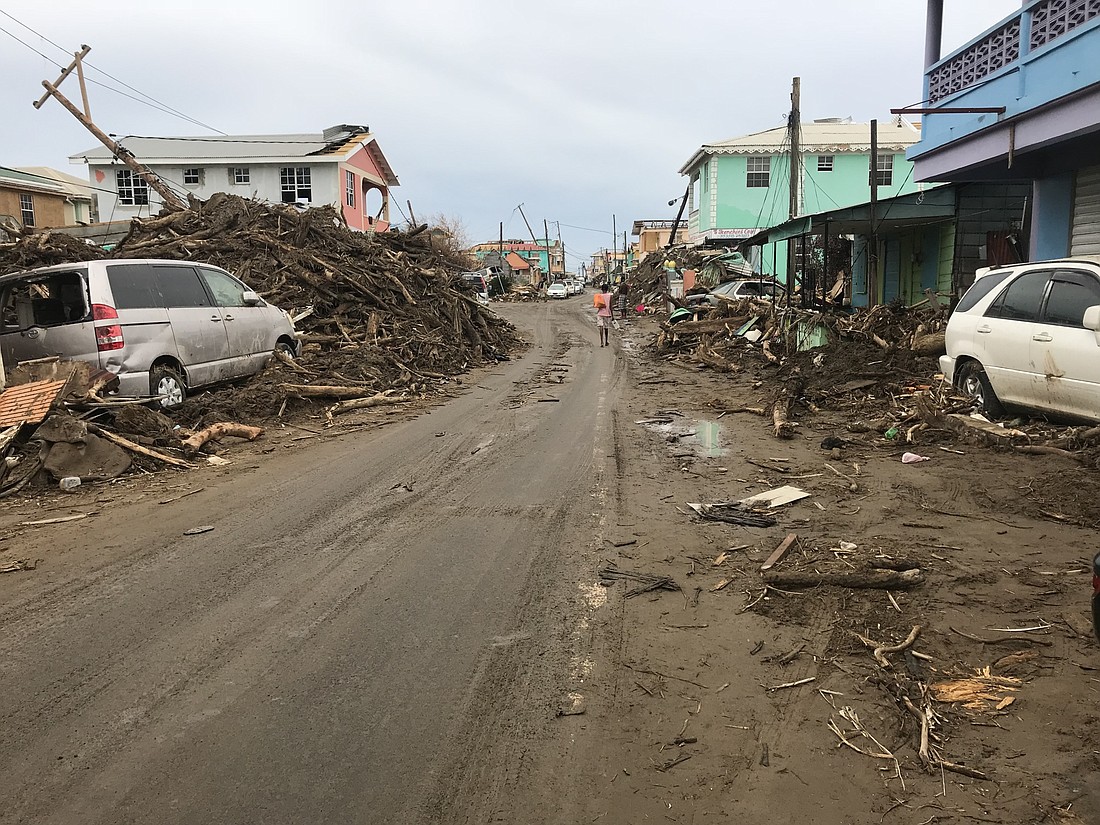- December 13, 2025
-
-
Loading

Loading

The most accurate way Windermere resident Chad McGhee can describe Dominica post-Hurricane Maria is “like post-Nazi Germany after World War II.”
Debris and dirt were everywhere, making the small island look like a war zone. Many of its inhabitants lost everything they owned, including homes they spent years building. The majority of power lines were down, and it could be months before power is regained. Much of the tropical island’s resources were wiped out, thanks to one large storm.
McGhee co-owns and operates many retail stores throughout the Caribbean, and he lived there with his family for about seven years before returning to purchase the house he grew up in near downtown Windermere.
When he saw Dominica was going to take a hit from Maria, he immediately was worried for the employees running one of his businesses there and knew he had to help.
RELIEF FOR DOMINICA
“After the storm, I couldn’t get in touch with any of the employees, so it started with us setting up a donation drive in Grenada and Barbados for people in the community to drop off bottled water, canned goods and more to transport to Dominica,” McGhee said. “After a couple of days of not being able to get in touch and figuring out the logistics of getting the goods to Dominica, I decided to personally go down there and deliver the stuff myself and hopefully find my employees.”
Even the neighborhood kids off Forest Street in Windermere decided to help McGhee in his relief efforts. They held a lemonade stand, which raised a couple of hundred dollars that went toward purchasing supplies to bring to the island.
After taking off on a flight to Grenada, McGhee found someone organizing a boat to leave from Grenada to Dominica to bring supplies and was able to get on board as a passenger — along with at least 10 pallets of supplies.
“I didn’t really know what I was getting into; I just knew I had to try to get there and help somehow,” he said. “I flew to Grenada, collected all the supplies — maybe 10 pallets of canned goods, a generator and bottled water — and brought them to the port to load onto a 1950s tugboat called the Flying Buzzard — a boat that is absolutely falling apart.”
The journey to Dominica was 240 miles over the span of 42 hours — along with a stop in St. Lucia for more supplies — but McGhee and the crew arrived early on Wednesday, Sept. 27. They then spent the next three days unloading thousands of pounds’ worth of supplies and distributing them to the island’s residents.
“The place is pretty rough; about 80% of the people there have severe damage to their homes,” McGhee said. “It was unfortunate too, because it’s a very tropical island and a lot of the families export produce. The reports are that 100% of crops were destroyed in the storm. It’s going to take a long time before people can start earning a living again.”
RECOVERING FROM MARIA
Although Dominica is elevated and steep, all of the water comes together in a couple of crevices or small rivers down the mountainous areas and into the ocean. Rivers that are normally inches deep are now hundreds of feet wide and 30 to 40 feet high, he said. The rushing water also brings down trees with it, provoking a landslide of sorts.
“Generally, Dominica is a very nice, friendly, non-violent place, but people are pretty desperate right now in Roseau (capital city),” he said. “One hundred percent of businesses have been looted, I mean completely emptied. People just went in and stole everything. We ended up feeling quite safe when we got there, but going there we didn’t know what to expect.”
But although its people are desperate for help and resources, McGhee that he didn’t encounter one person who was pushy, rude or controlling — everyone was just grateful to have more supplies than they did the day before.
Those who lost their homes are either staying with friends or family, or lining up by the thousands as refugees trying to get to Martinique or St. Lucia. McGhee stood in line from 7:30 a.m. to 4:30 p.m. Saturday morning to get on a boat to Martinique before catching a flight back to Miami.
“I was just there to help,” he said. “I have the ability with my work to come and go, and it afforded me the opportunity to help. I know people down there. We were able to get in touch with the manager of the store right before I arrived because he ended up being off island for the storm, and we were able to find the rest of the employees and get supplies to them and their families. They’re all safe.”
Although McGhee is now home, having seen the destruction and relief efforts is something that has shifted his perspective about the resources he enjoys at home.
“The infrastructure here, there’s no comparison,” he said. “We take it for granted. ... Irma comes here, and we’re out of power for three days and we’re complaining because we’re hot. But when you get down there you get to see a real perspective of devastation and loss due to a natural disaster. People are stuck there, and everything they’ve ever had in their life is taken from them.”